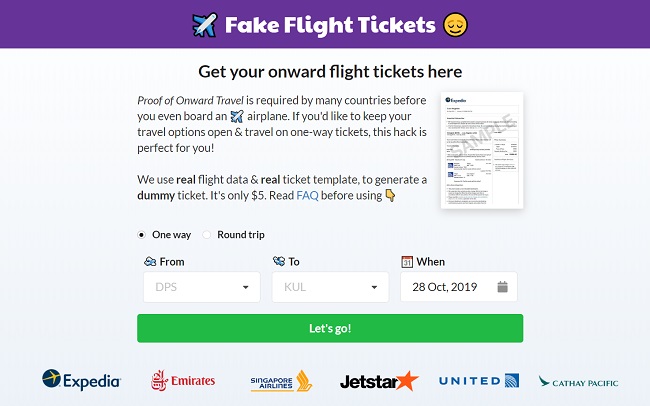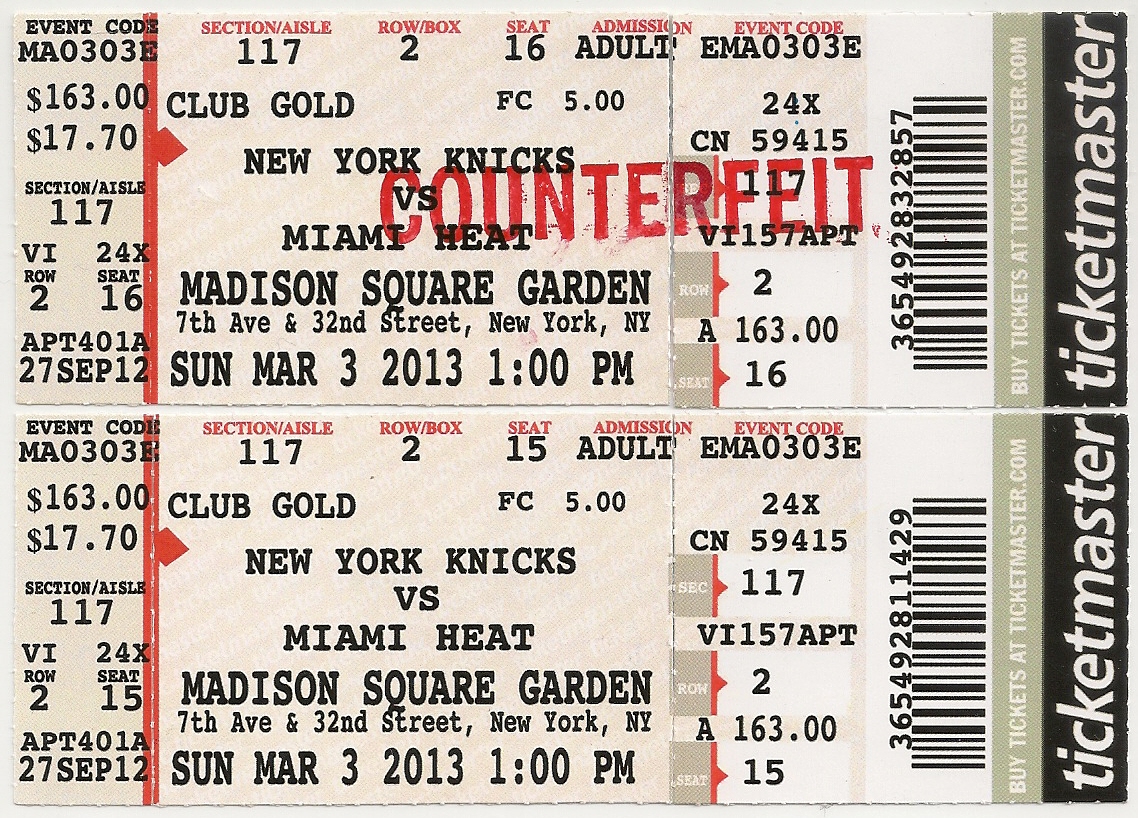The Risks of Buying Fake Tickets Online
The rise of online marketplaces like StubHub has made it easier than ever to buy and sell event tickets. However, this convenience comes with a growing concern: counterfeit tickets. Fake tickets can lead to financial loss, disappointment, and even safety risks for unsuspecting buyers. In fact, according to a recent study, over 10% of tickets sold online are counterfeit. This highlights the need for buyers to be vigilant when purchasing tickets online, particularly on platforms like StubHub. To avoid falling victim to fake tickets, it’s essential to understand the risks involved and know how to spot fake StubHub tickets.
One of the most significant risks of buying fake tickets is financial loss. Counterfeit tickets can be extremely convincing, making it difficult for buyers to distinguish them from genuine tickets. If a buyer purchases a fake ticket, they may not be able to get a refund or exchange it for a real ticket. This can result in a significant financial loss, especially for high-demand events. Furthermore, fake tickets can also lead to disappointment and frustration, particularly if the buyer is looking forward to attending a specific event.
In addition to financial loss and disappointment, fake tickets can also pose safety risks. Counterfeit tickets can be used to gain access to events, which can lead to overcrowding and safety hazards. Moreover, fake tickets can also be used to scam buyers, leading to identity theft and other forms of cybercrime. To mitigate these risks, it’s crucial for buyers to be aware of the warning signs of fake tickets and know how to spot them.
So, how can buyers protect themselves from fake tickets on StubHub? The first step is to be cautious of suspicious listings. If a listing seems too good to be true, it probably is. Look out for low prices, poor grammar, and lack of seller feedback. These are all red flags that may indicate a fake ticket. Additionally, buyers should also verify the ticket’s authenticity by checking for clear photos, detailed descriptions, and verified seller information. By taking these precautions, buyers can significantly reduce the risk of buying fake tickets on StubHub.
Red Flags to Watch Out for When Buying Tickets on StubHub
When buying tickets on StubHub, it’s essential to be aware of the common red flags that may indicate a ticket listing is fake. One of the most significant red flags is a low price. If a ticket listing is significantly cheaper than similar listings, it may be a scam. Be cautious of listings that seem too good to be true, as they often are. Additionally, poor grammar and spelling in the listing description can also be a sign of a fake ticket. Legitimate sellers typically take the time to write clear and concise descriptions, so be wary of listings with multiple errors.
Another red flag is a lack of seller feedback. StubHub allows buyers to leave feedback for sellers after a transaction is complete. If a seller has little to no feedback, it may indicate that they are not a legitimate seller. Look for sellers with a high feedback rating and a large number of reviews. This can give you an idea of their reputation and help you avoid fake tickets.
Here’s an example of a suspicious listing: “2 tickets to see the Rolling Stones at Madison Square Garden for $20 each. Tickets are guaranteed to be authentic and will be shipped immediately.” This listing is suspicious for several reasons. First, the price is significantly lower than similar listings. Second, the listing description is brief and lacks details. Finally, the seller is guaranteeing the authenticity of the tickets, which is a common tactic used by scammers.
If you come across a suspicious listing, it’s essential to report it to StubHub immediately. You can do this by clicking the “Report” button on the listing page. StubHub takes reports of suspicious activity seriously and will investigate the listing to determine if it’s fake. By reporting suspicious listings, you can help keep the StubHub community safe and avoid falling victim to fake tickets.
When reporting a suspicious listing, be sure to include as much detail as possible. This can include the listing title, description, and price, as well as any other relevant information. This will help StubHub’s customer support team to investigate the listing and take action if necessary.
Verifying Ticket Authenticity: What to Look for in a Listing
When buying tickets on StubHub, it’s essential to carefully review the listing to ensure the tickets are authentic. One of the most critical factors to consider is the presence of clear photos. Legitimate sellers typically include high-quality photos of the tickets, which can help verify their authenticity. Look for listings with multiple photos of the tickets from different angles, including the front and back.
In addition to clear photos, a detailed description of the tickets is also crucial. Legitimate sellers typically include information about the ticket’s condition, including any flaws or defects. They may also include details about the ticket’s authenticity, such as a certificate of authenticity or a guarantee. Be wary of listings with vague or generic descriptions, as they may be an indication of a fake ticket.
Verified seller information is also an essential factor to consider when verifying ticket authenticity. StubHub allows sellers to verify their identity and provide additional information about their tickets. Look for listings with verified seller information, including a profile picture, bio, and feedback rating. This can give you an idea of the seller’s reputation and help you avoid fake tickets.
StubHub also provides several built-in features to help verify ticket authenticity. One of these features is the “Verified” badge, which indicates that the seller has verified their identity and provided additional information about their tickets. Look for listings with the “Verified” badge, as they are more likely to be authentic.
Another feature is the “Ticket Guarantee” badge, which indicates that the seller has guaranteed the authenticity of the tickets. This badge is typically displayed on listings that have been verified by StubHub’s ticket authentication process. Look for listings with the “Ticket Guarantee” badge, as they are more likely to be authentic.
By carefully reviewing the listing and looking for these factors, you can increase your chances of buying authentic tickets on StubHub. Remember to always be cautious and take your time when reviewing listings, as it’s better to be safe than sorry.
StubHub’s Ticket Authentication Process: How it Works
StubHub takes the authenticity of tickets very seriously and has implemented a robust ticket authentication process to protect buyers from counterfeit tickets. The process involves the use of third-party authenticators who verify the authenticity of tickets before they are listed on the platform.
When a seller lists a ticket on StubHub, it is reviewed by the platform’s authentication team. The team checks the ticket’s details, including the event name, date, time, and seat location, to ensure that it matches the information provided by the seller. The team also verifies the ticket’s authenticity by checking for any signs of tampering or alteration.
If the ticket passes the authentication process, it is listed on the platform with a “Verified” badge. This badge indicates that the ticket has been authenticated by StubHub’s team and is guaranteed to be authentic. Buyers can look for this badge when searching for tickets on the platform to ensure that they are purchasing authentic tickets.
In addition to the authentication process, StubHub also offers a guarantee policy that protects buyers from counterfeit tickets. The policy, known as the FanProtect guarantee, promises a full refund or replacement tickets if an event is cancelled or a ticket is fake. This guarantee provides buyers with added peace of mind when purchasing tickets on the platform.
StubHub’s ticket authentication process and guarantee policy are designed to provide buyers with a safe and secure way to purchase tickets online. By using third-party authenticators and verifying the authenticity of tickets, StubHub is able to minimize the risk of counterfeit tickets being sold on the platform. This helps to protect buyers from financial loss and ensures that they have a positive experience when purchasing tickets on StubHub.
It’s worth noting that StubHub’s ticket authentication process is not foolproof, and it’s still possible for counterfeit tickets to slip through the cracks. However, the platform’s efforts to authenticate tickets and provide a guarantee policy demonstrate its commitment to protecting buyers and providing a safe and secure way to purchase tickets online.
Additional Tips for Avoiding Fake Tickets on StubHub
In addition to being aware of the red flags and verifying ticket authenticity, there are several other tips that can help you avoid buying fake tickets on StubHub. One of the most important tips is to only buy from trusted sellers. Look for sellers with a high feedback rating and a large number of reviews. This can give you an idea of their reputation and help you avoid fake tickets.
Another tip is to be cautious of last-minute deals. If a seller is offering a significantly discounted price for a ticket, it may be a scam. Be wary of listings that seem too good to be true, as they often are. Additionally, be cautious of sellers who are pushing for a quick sale or who are using high-pressure tactics to get you to buy.
Using a secure payment method is also essential when buying tickets on StubHub. Make sure to use a payment method that offers buyer protection, such as a credit card or PayPal. This can help protect you from financial loss if you do end up buying a fake ticket.
It’s also a good idea to keep an eye on the ticket’s listing history. If a ticket has been listed multiple times or has had multiple price changes, it may be a sign of a fake ticket. Additionally, be wary of listings that have been posted multiple times with different prices or descriptions.
Finally, make sure to read the fine print before making a purchase. Check the ticket’s details, including the event name, date, time, and seat location, to ensure that it matches the information provided by the seller. Also, check the seller’s return and refund policies in case something goes wrong.
By following these tips, you can significantly reduce the risk of buying fake tickets on StubHub. Remember to always be cautious and take your time when reviewing listings, as it’s better to be safe than sorry.
What to Do If You Suspect You’ve Bought a Fake Ticket
If you suspect that you’ve bought a fake ticket on StubHub, it’s essential to take action quickly to minimize your losses. The first step is to contact StubHub’s customer support team. You can do this by clicking on the “Help” button at the top of the page and selecting “Contact Us” from the dropdown menu.
When you contact StubHub’s customer support team, be prepared to provide them with as much information as possible about the ticket and the transaction. This includes the ticket’s listing number, the seller’s name and feedback rating, and any communication you’ve had with the seller.
StubHub’s customer support team will investigate the matter and take action to resolve the issue. If they determine that the ticket is fake, they will cancel the transaction and provide a full refund. They may also take action against the seller, including suspending or terminating their account.
In addition to contacting StubHub’s customer support team, you may also want to file a claim with your credit card company or PayPal. This can help you to recover any losses you’ve incurred as a result of the fake ticket.
It’s also essential to report the incident to StubHub’s Trust and Safety team. You can do this by clicking on the “Report” button on the ticket’s listing page. This will help StubHub to identify and prevent similar incidents in the future.
Remember to stay calm and patient when dealing with a fake ticket. It’s frustrating and disappointing, but by taking the right steps, you can minimize your losses and prevent similar incidents from happening in the future.
It’s also important to note that StubHub has a zero-tolerance policy for counterfeit tickets. If you suspect that a ticket is fake, don’t hesitate to report it to StubHub’s Trust and Safety team. They will take action to investigate and resolve the issue, and may also take action against the seller.
StubHub’s Refund and Guarantee Policies: What You Need to Know
StubHub offers a range of refund and guarantee policies to protect buyers from counterfeit tickets and other issues. One of the most important policies is the FanProtect guarantee, which promises a full refund or replacement tickets if an event is cancelled or a ticket is fake.
The FanProtect guarantee is a comprehensive policy that covers a range of scenarios, including event cancellations, ticket authenticity issues, and other problems. If a buyer experiences any issues with their ticket, they can contact StubHub’s customer support team to initiate a claim.
StubHub also offers a refund policy for buyers who are not satisfied with their ticket purchase. If a buyer requests a refund within a certain timeframe, StubHub will process the refund and return the buyer’s money.
In addition to the FanProtect guarantee and refund policy, StubHub also offers a guarantee policy for sellers. This policy protects sellers from losses due to counterfeit tickets or other issues, and provides a range of benefits and protections.
It’s essential to understand StubHub’s refund and guarantee policies before making a purchase on the platform. By knowing what to expect, buyers can make informed decisions and avoid potential issues.
StubHub’s refund and guarantee policies are designed to provide buyers with peace of mind and protection from counterfeit tickets and other issues. By offering a range of policies and benefits, StubHub aims to create a safe and secure marketplace for buyers and sellers.
When buying tickets on StubHub, it’s crucial to carefully review the listing and understand the refund and guarantee policies. By doing so, buyers can make informed decisions and avoid potential issues.
Staying Safe on StubHub: Best Practices for Buyers
When buying tickets on StubHub, it’s essential to stay vigilant and take steps to protect yourself from counterfeit tickets and other issues. Here are some best practices to follow:
Be cautious of suspicious listings: If a listing seems too good to be true, it probably is. Look out for low prices, poor grammar, and lack of seller feedback. These are all red flags that may indicate a fake ticket.
Verify ticket authenticity: Carefully review the ticket listing and look for clear photos, detailed descriptions, and verified seller information. Use StubHub’s built-in features to verify ticket authenticity.
Use secure payment methods: Make sure to use a secure payment method, such as a credit card or PayPal, to protect yourself from financial loss.
Only buy from trusted sellers: Look for sellers with a high feedback rating and a large number of reviews. This can give you an idea of their reputation and help you avoid fake tickets.
Be cautious of last-minute deals: If a seller is offering a significantly discounted price for a ticket, it may be a scam. Be wary of listings that seem too good to be true.
Report suspicious activity: If you suspect that a listing is fake or that a seller is engaging in suspicious activity, report it to StubHub immediately.
By following these best practices, you can significantly reduce the risk of buying fake tickets on StubHub and ensure a safe and secure transaction.
Remember, it’s always better to be safe than sorry. If you’re unsure about a listing or a seller, it’s best to err on the side of caution and avoid the transaction.
StubHub is a safe and secure marketplace, but it’s still important to take steps to protect yourself from counterfeit tickets and other issues. By being vigilant and following these best practices, you can ensure a positive experience on the platform.







